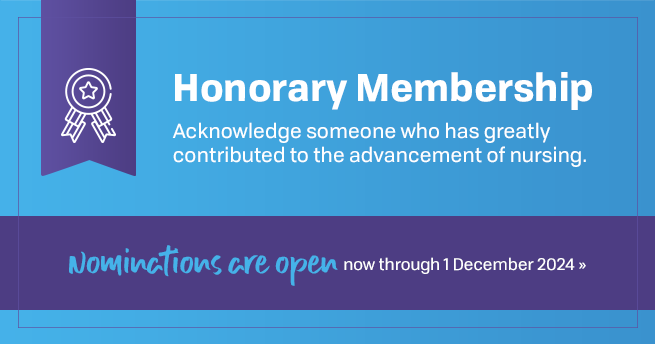Walter Ulrich
Honorary Member
“I am the luckiest person on the planet,” Walter Ulrich said from his office in Houston, Texas, USA. Walter is the CEO of Medical Bridges, a nonprofit organization that bridges the gap in medical care all over the world and promotes global healthcare equity. He came out of retirement in 2019 to take the helm and gave it three to five years. When he’s asked now about when he plans to stop, he still says three to five years.
Walter was one of 16 people at the 47th Biennial Convention honored with honorary membership in Sigma. It acknowledges the work of those who have a sustained national or global impact on nursing and healthcare. Medical Bridges was honored with the Archon Award, which recognizes individuals or groups regardless of profession who have made health a major aspect of their work and created significant change that is national or transnational in scope.
Health equity is, Walter says, one of the most important global and domestic issues facing us today, and right now it is at a critical point. He cites a quote from Dr. Martin Luther King, Jr., in which King stated that “Of all forms of inequality, injustice in healthcare is the most shocking and inhumane.”
He remains constantly aware of what is going on around the world and whether his organization can safely and effectively deliver supplies to both underserved and war-torn areas. Three years ago, he went to Pakistan where, because of a slight rule change, they could no longer get donated medical supplies into the country. “We could not get free stuff into Pakistan,” Walter said. He spent a week there, calling it a joyful trip, and met with ministers of health and regional governors to help loosen up restrictions.

In September 2023, Ukrainian president Volodymyr Zelenskyy awarded Walter and Medical Bridges with the Order of Merit; it is one of the things Walter is most proud of in the five years he’s been at Medical Bridges. Since the war in Ukraine began, Medical Bridges has stepped up, providing four shipping-container clinics and 265 tons of medical equipment and supplies. Unfortunately, Medical Bridges cannot always continue their work in a country. They used to be the sole supplier of a major rural hospital in Haiti, but because of the lack of government in that country, they’re no longer able to be that supplier. It’s a similar story in Sudan.
Though Medical Bridges focuses on distributing medical supplies to 104 countries outside of the United States, they do also serve some underserved areas in the US, particularly rural areas in Texas. Walter said that Medical Bridges acts as a “safety valve” when an emergency happens. During the COVID-19 pandemic, rural counties in Texas that have small clinics or hospitals found it difficult to buy the supplies they needed. At the time, UT Health’s nursing students were ready to start their clinicals, and Medical Bridges stepped in and donated 1,300 masks so students could continue their education and graduate.
Reaching more people challenges Walter and keeps him motivated. He says, “If Medical Bridges was going to do 61 maritime containers every year forever, I’d re-retire.” Next year, he hopes they can send 71 containers and increase each year. “That means enough treatment material for a couple hundred thousand more people to get treatment.”
With the goal of healthcare equity in mind, his advice for nurses beginning their careers breaks down to: take care of yourself, use your skills the best way you can, trust yourself, and be engaged in policy. As a nurse “grows to understand what’s going on from a policy standpoint, they can then be a leader in influencing” policy. He also encourages nurses to volunteer for organizations like Medical Bridges that are accredited by the MedSurplus Alliance. Their education, skills, and competency are invaluable for the work that places like Medical Bridges does and is a direct way to have an impact on global healthcare equity.